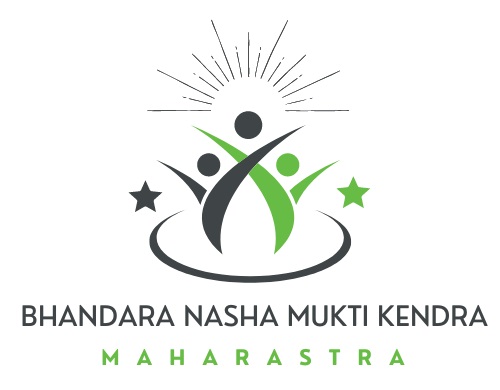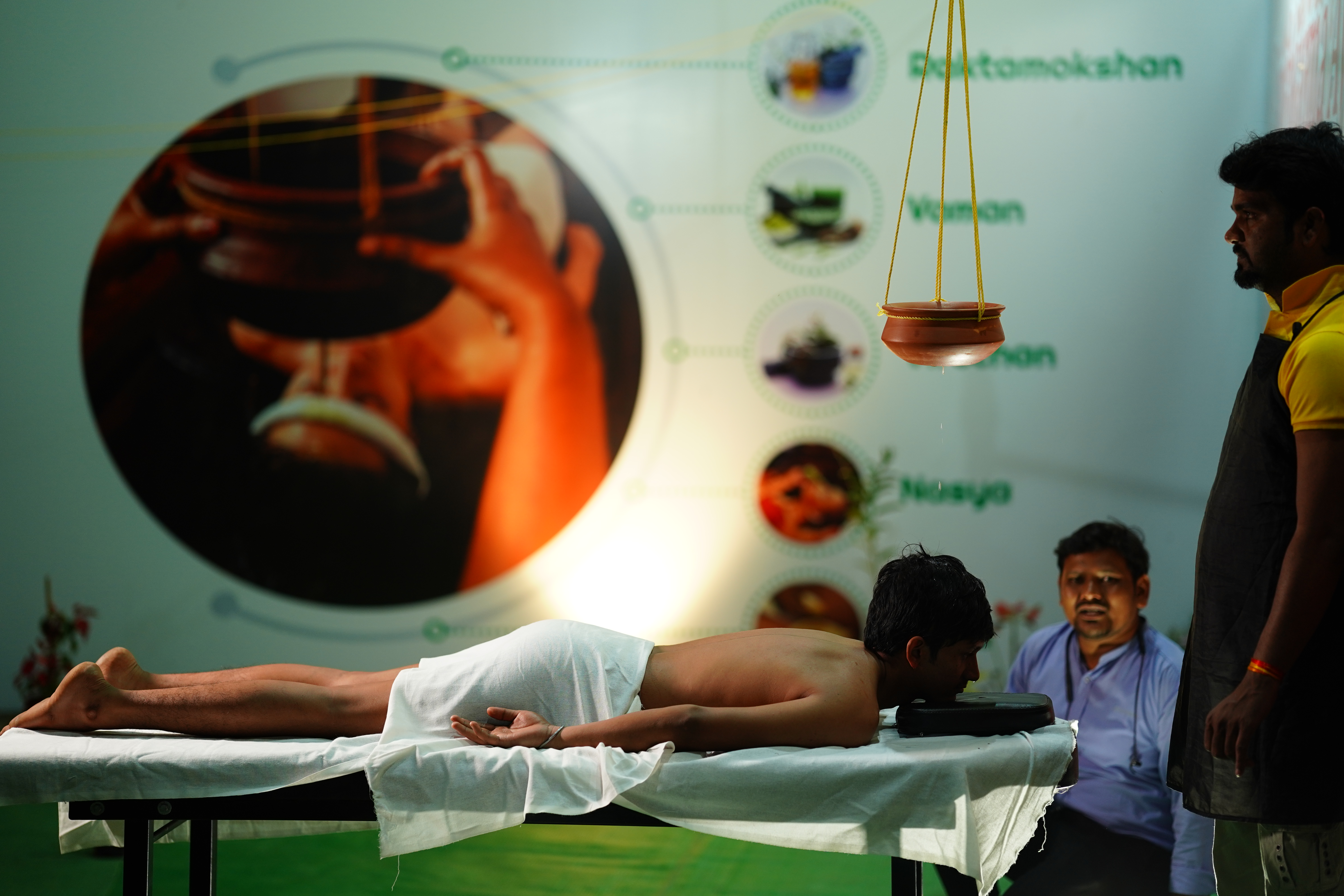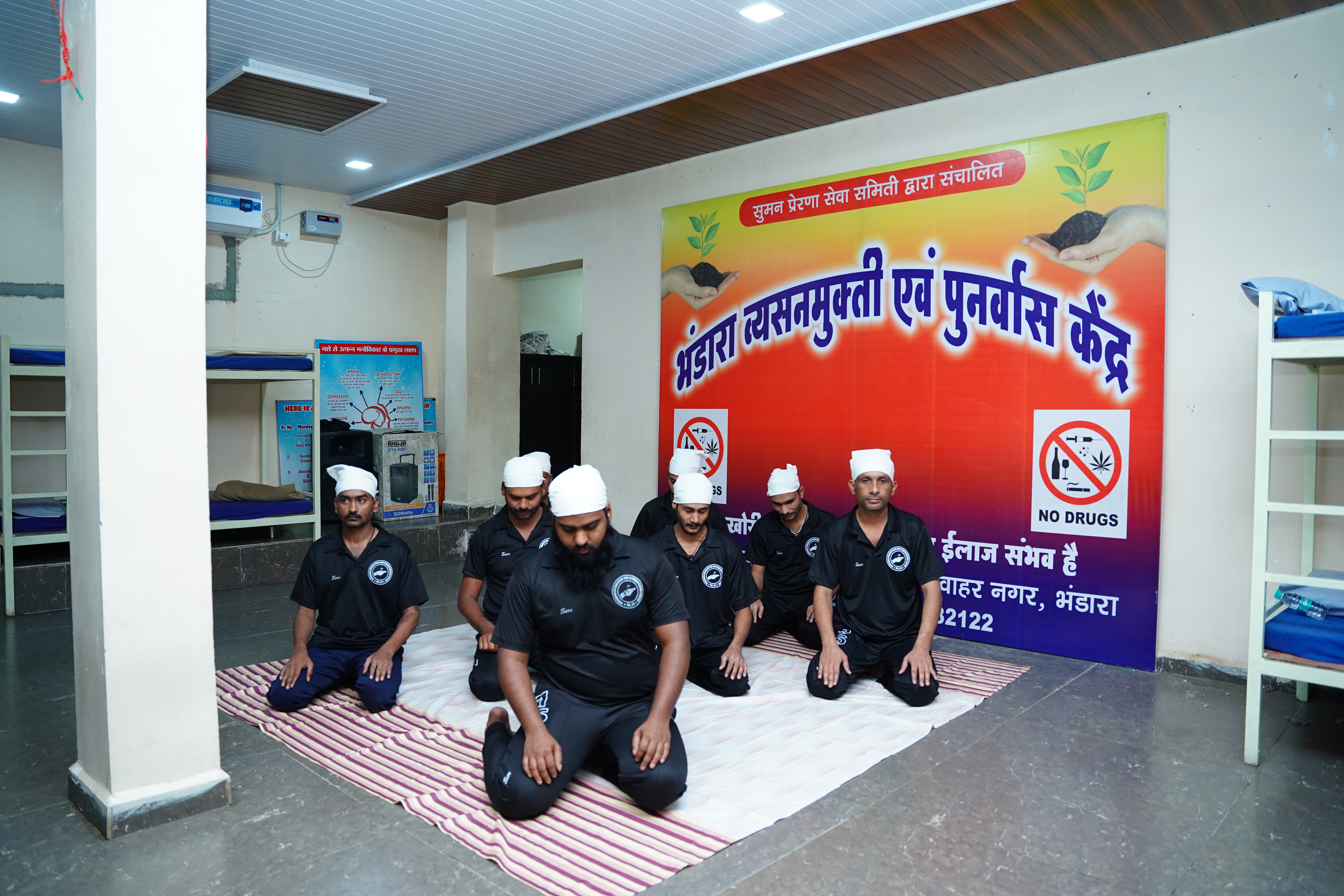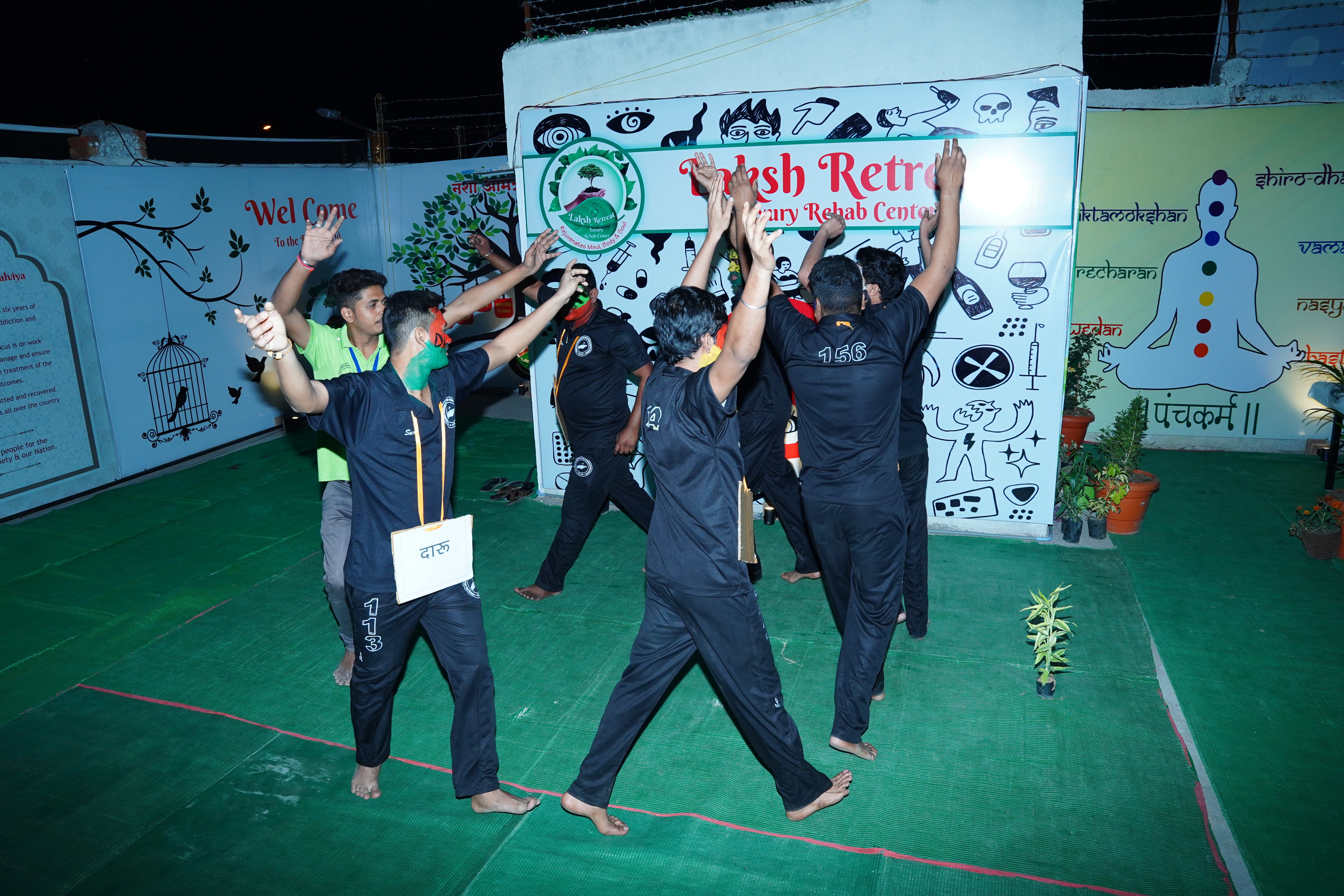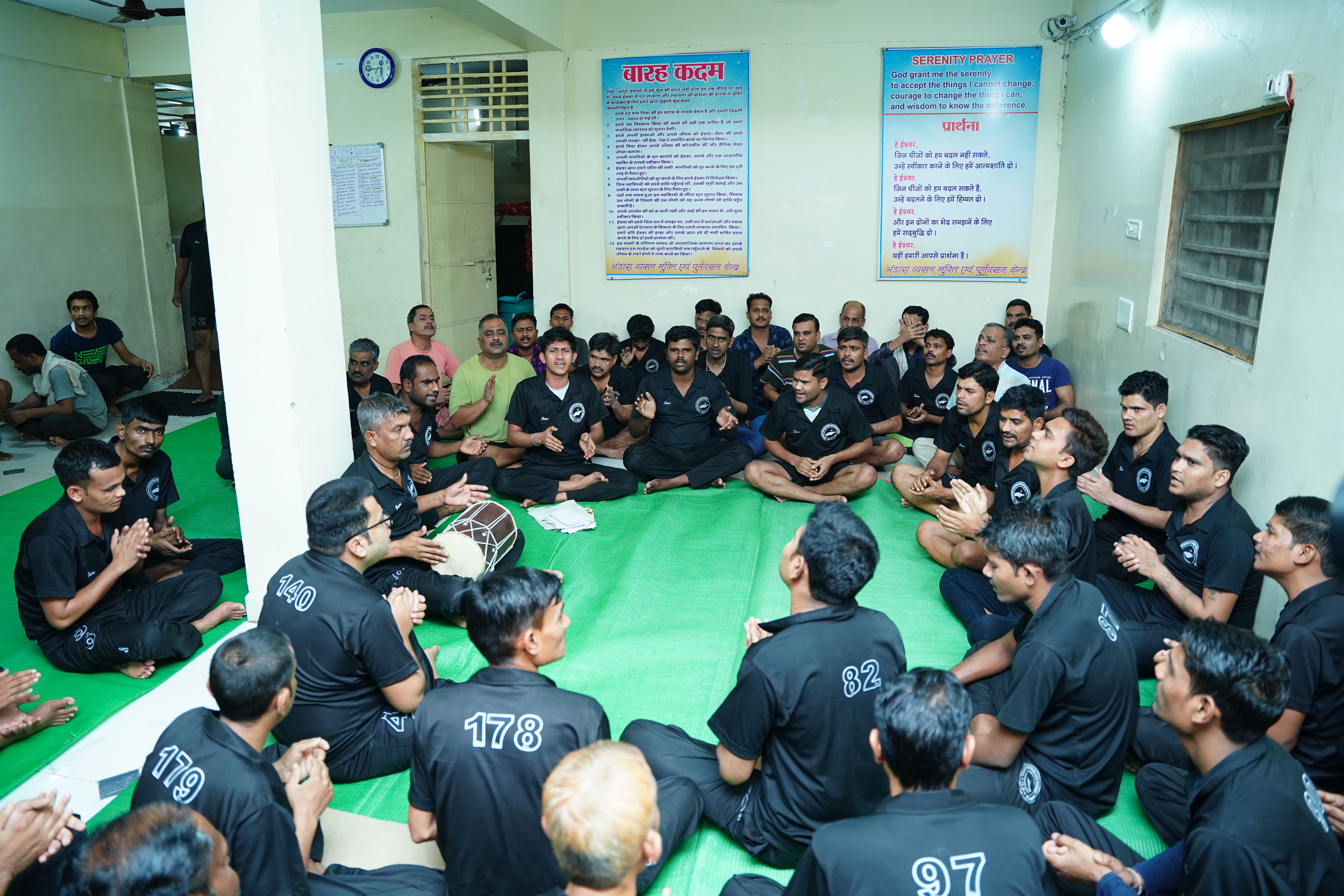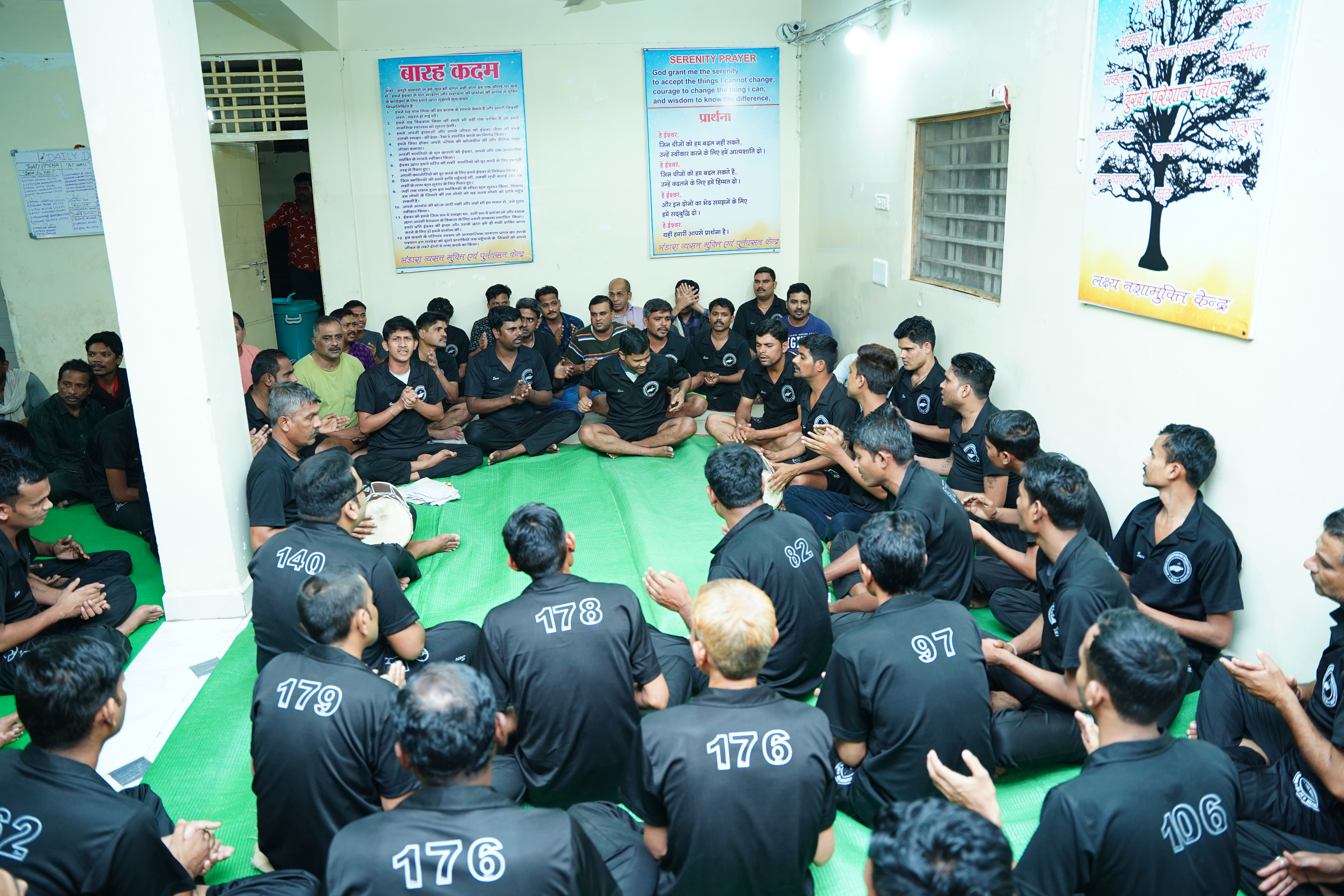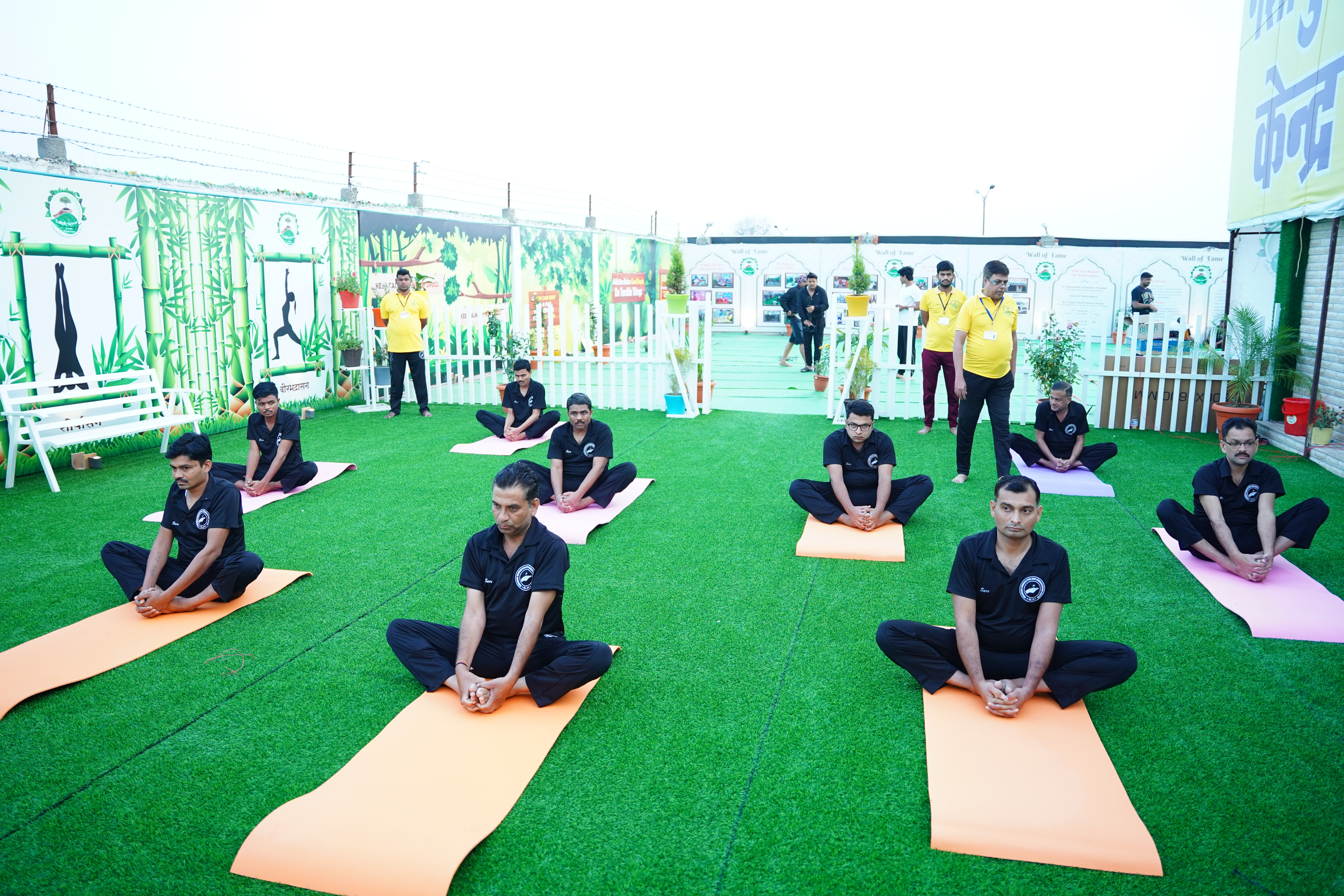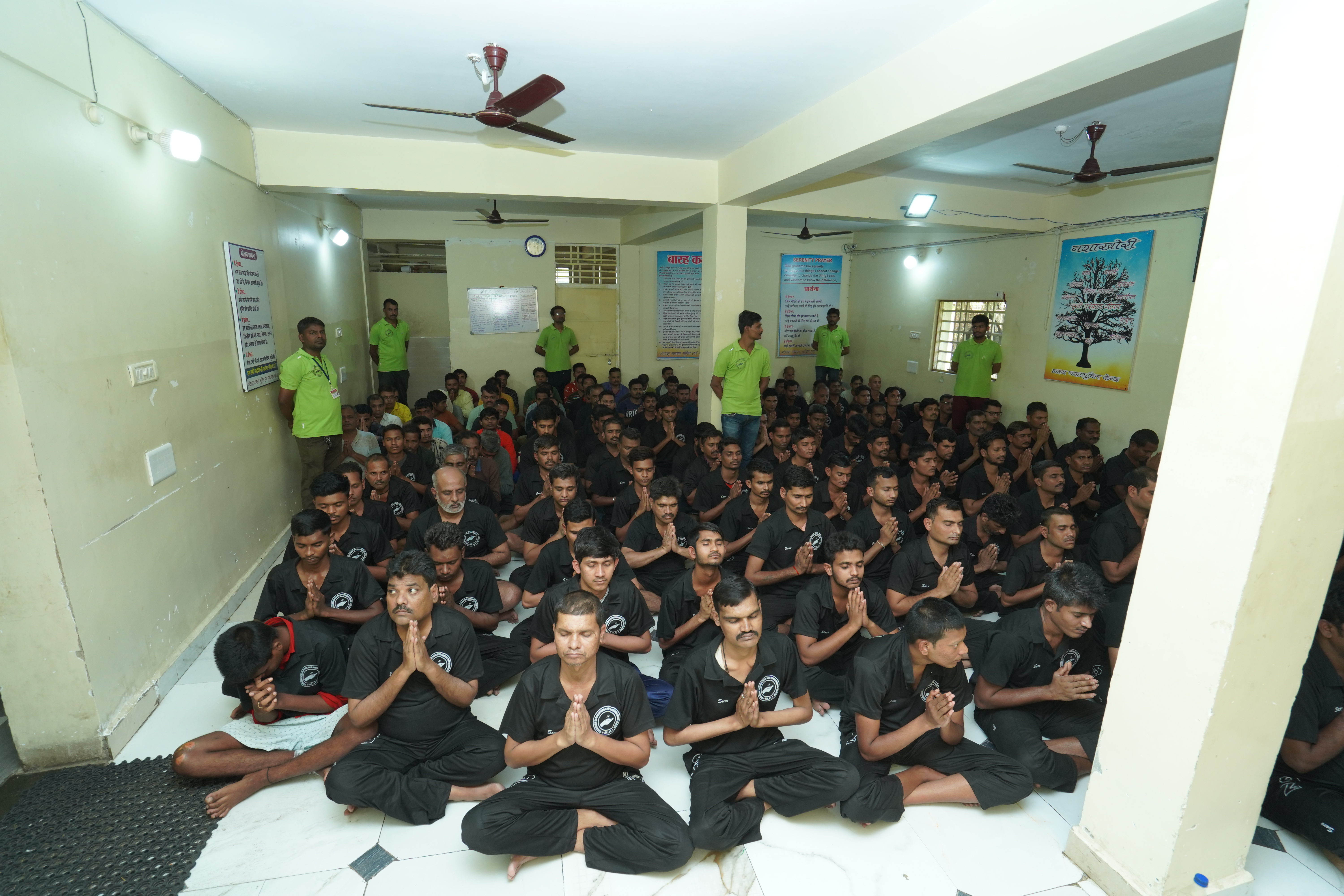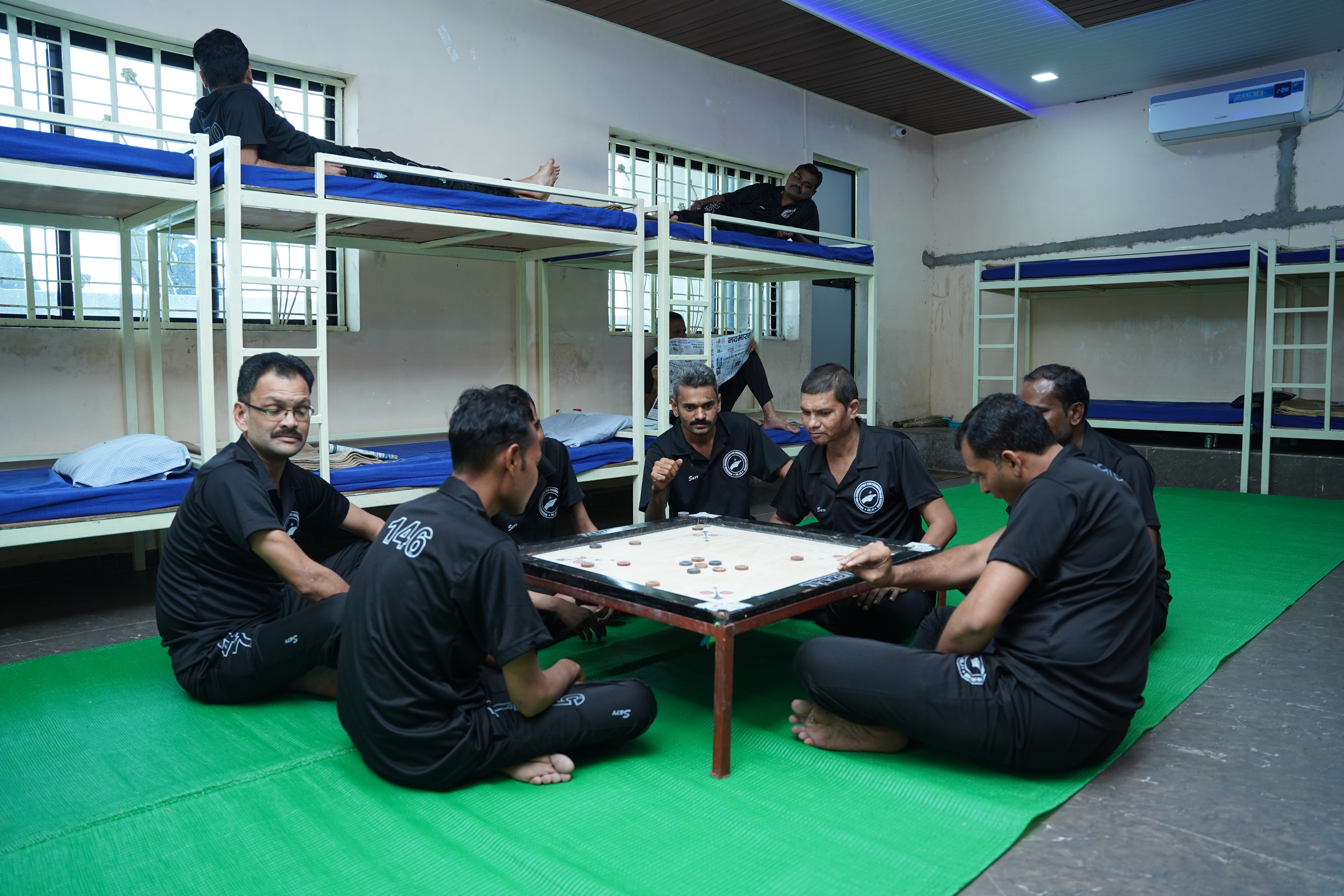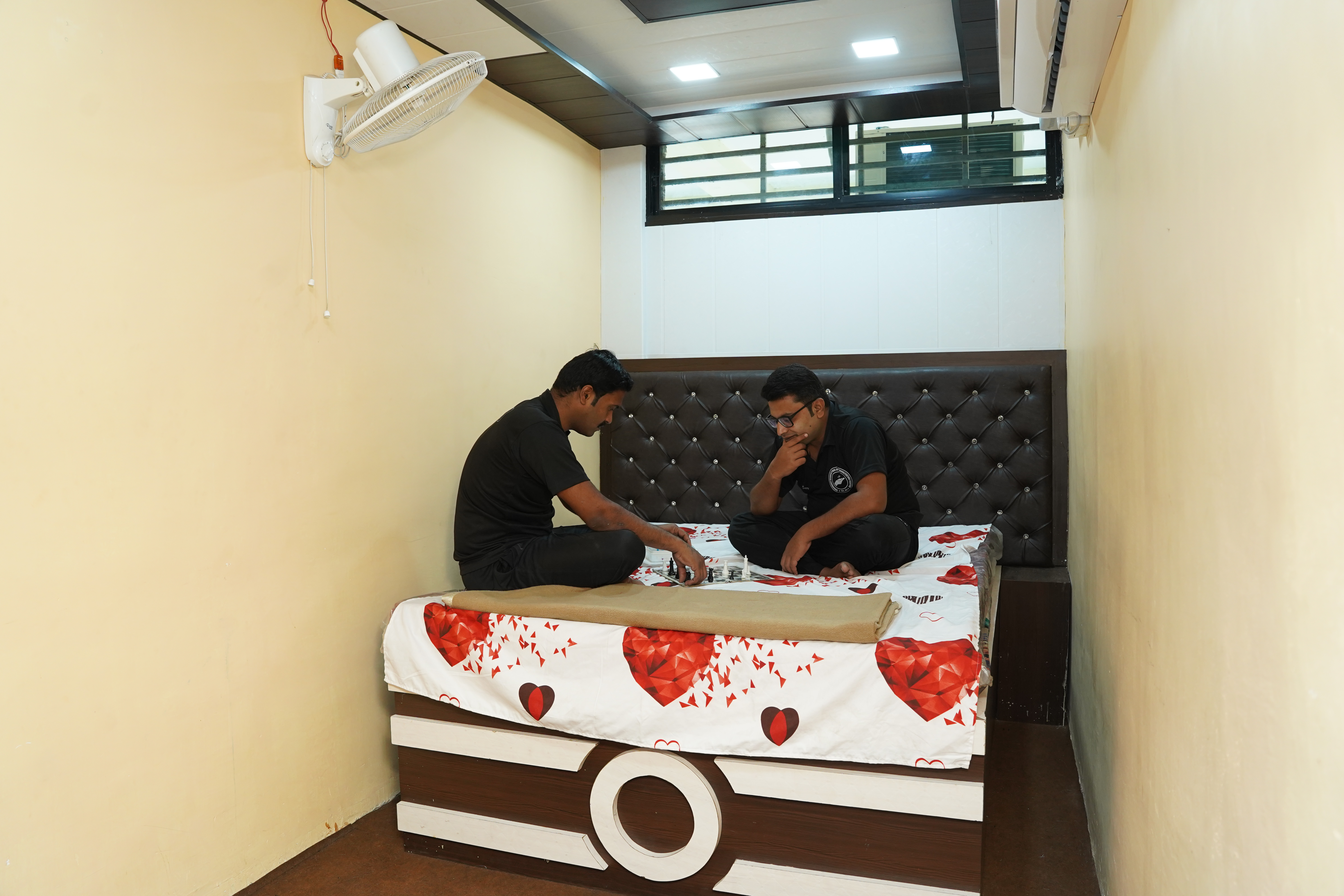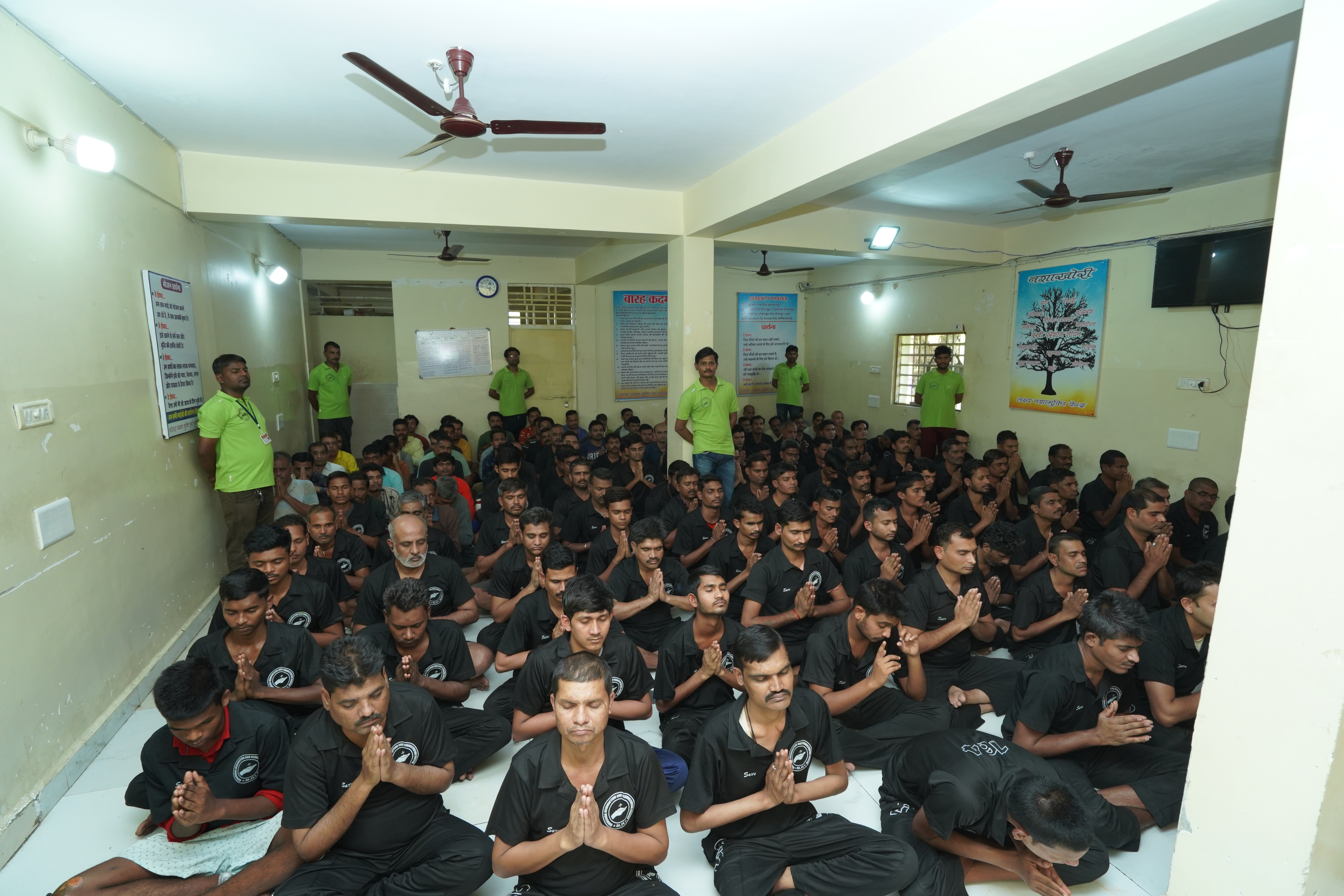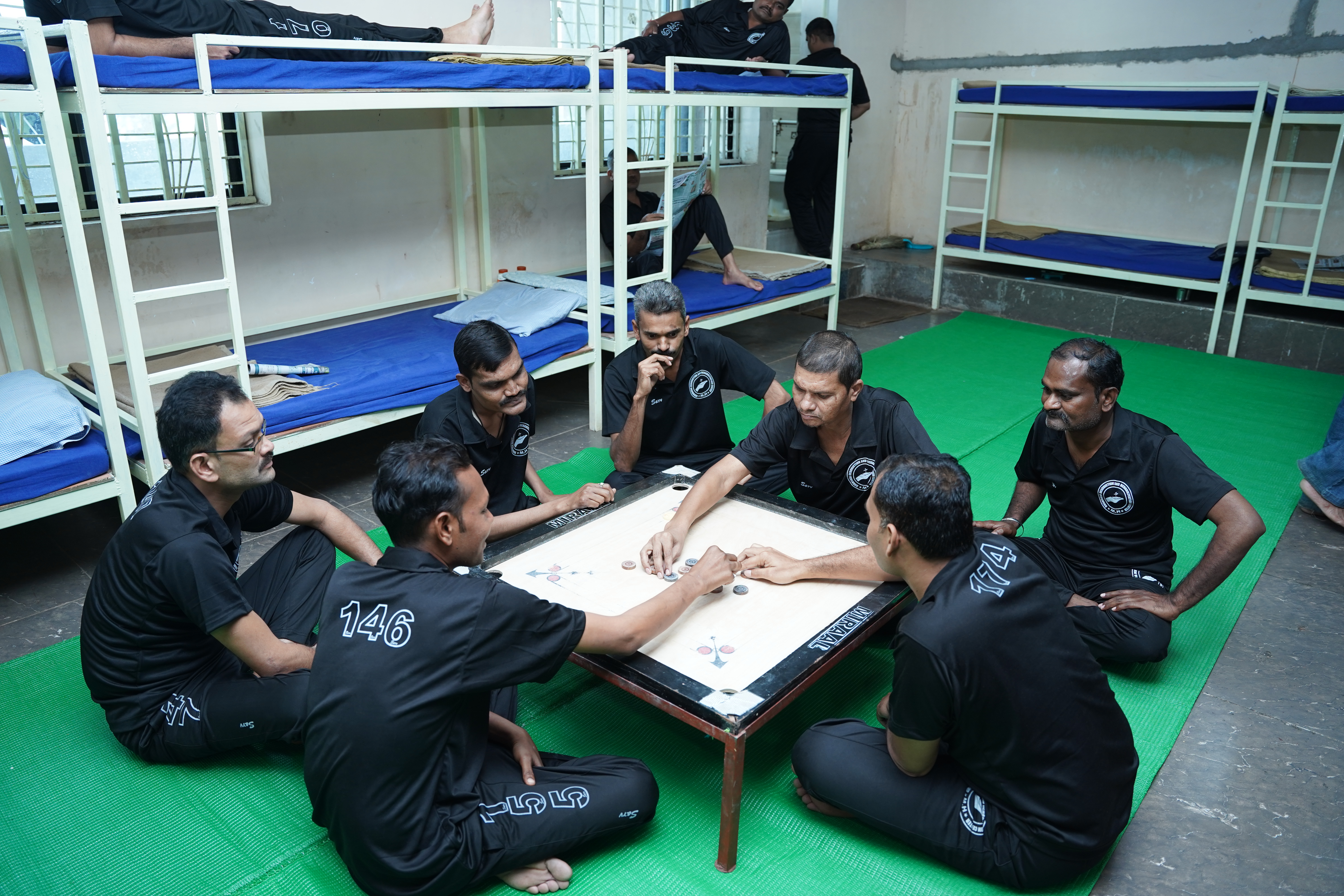LAKSH NAHSA MUKTI AND REHABILITATION CENTER, MAHARASHTRA
Welcome to the Laksh Rehabilitation Center, Maharashtra, your sanctuary of healing and hope nestled in the lush landscapes of Maharashtra. With over three decades of unwavering dedication, Laksh is a beacon of innovation, compassion, and holistic recovery for those battling addiction and mental health challenges.
Here, at Laksh Nasha Mukti Kendra, we believe in the power of personalized recovery, ensuring that every individual embarks on a journey tailored specifically to their needs, supported by the latest in evidence-based treatments and age-old healing practices. Our mission is to transform lives, guiding each person toward a future of wellness and fulfillment.
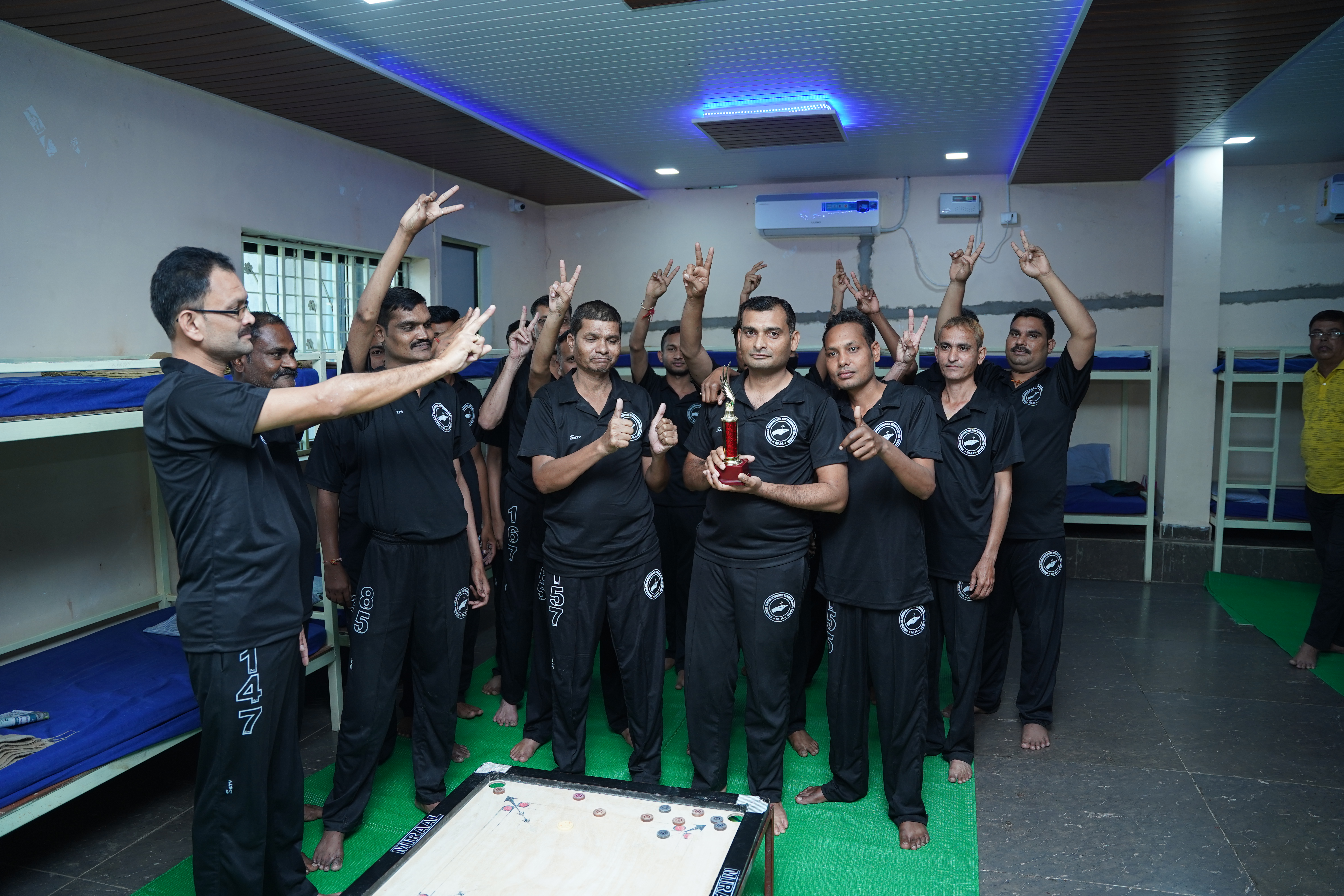
CALL US FOR FREE CONSULTATION
Our Philosophy at the Laksh Rehabilitation Center, Maharashtra
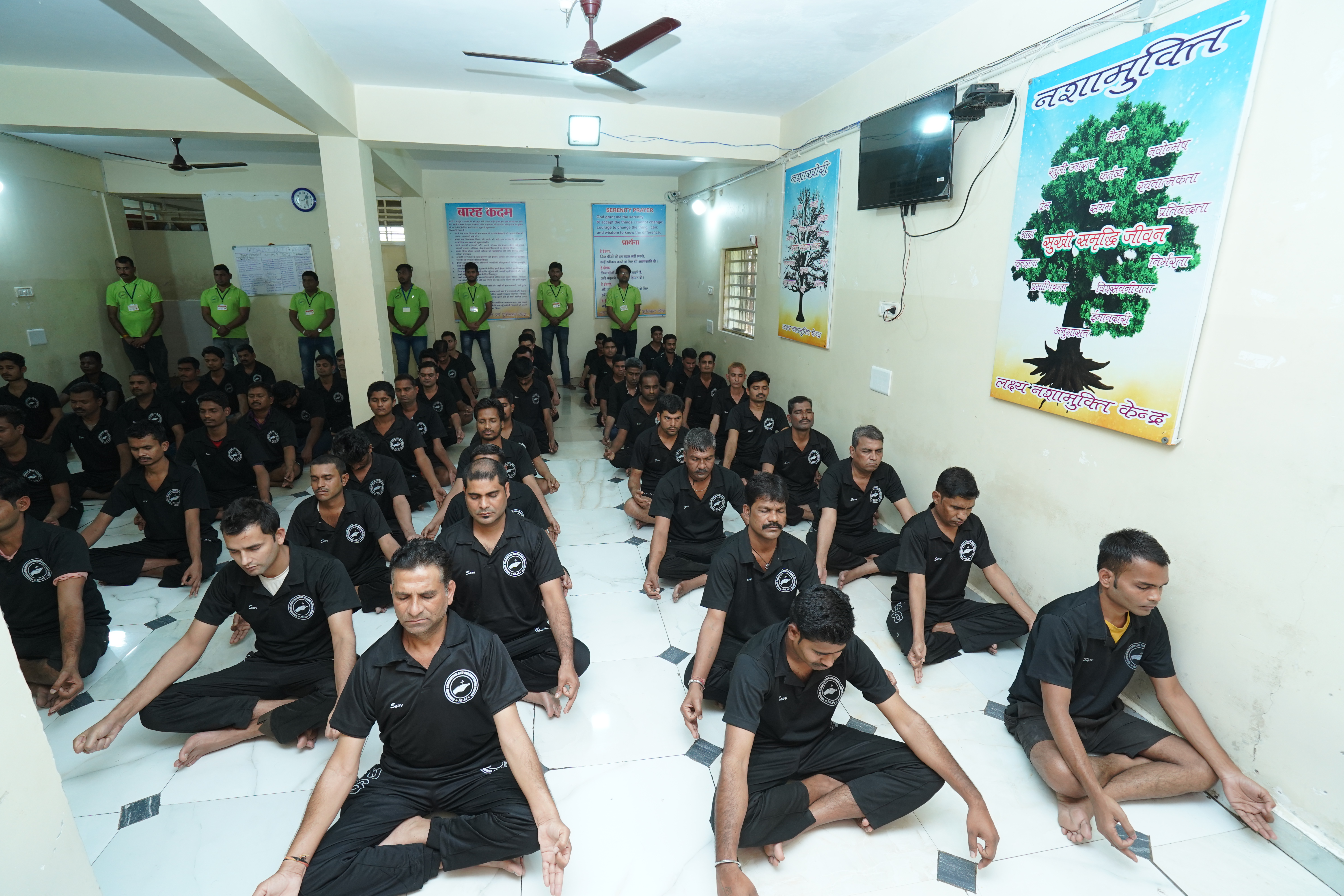
At the heart of Laksh Rehabilitation Center’s ethos is the conviction that recovery transcends physical healing, touching upon mental, emotional, and spiritual rejuvenation. We understand that addiction and mental health issues cast long shadows, but with the right approach, everyone can step back into the light.
The integrated care model at our Vyasan Mukti Kendra weaves together the best medical, psychological, and holistic therapies to address the symptoms and the root causes of addiction, fostering a deeply personal and empowering path to recovery.
Why Choose Laksh Nasha and Vyasan Mukti Kendra, Maharashtra for all your rehabilitation needs?
Opting for Laksh Vyasan Mukti Kendra means choosing a partner deeply committed to your recovery. Our distinctive approach combines a serene healing environment, a multidisciplinary team of experts, and a comprehensive suite of services designed to cater to every facet of addiction and mental health recovery. From the moment you join our community, you’ll find a culture of empathy, respect, and cutting-edge care, all aimed at helping you achieve lasting wellness. Our success stories testify to our dedication—each a beacon of hope for future clients.
लक्ष ड्रग रिहाबिलिटेशन (महाराष्ट्र) और पुनरावृत्ति निवारण
ड्रग रिहाबिलिटेशन और पुनरावृत्ति निवारण व्यसन मुक्ति के सफर में दो महत्वपूर्ण चरण होते हैं। ड्रलक्ष नशा मुक्ति केंद्र, महाराष्ट्र का उद्देश्य व्यक्तियों को उनके व्यसन से मुक्त करना और उन्हें एक स्वस्थ जीवन जीने के लिए आवश्यक कौशल और संसाधन प्रदान करना होता है। यह प्रक्रिया व्यक्तिगत परामर्श, समूह थेरेपी, चिकित्सा उपचार, और होलिस्टिक उपचारों जैसे योग और ध्यान को शामिल करती है। इसका उद्देश्य न केवल शारीरिक निर्भरता को दूर करना है बल्कि मानसिक स्वास्थ्य, भावनात्मक संतुलन, और सामाजिक संबंधों को भी मजबूत करना है।
पुनरावृत्ति निवारण, या रिलैप्स प्रिवेंशन, व्यक्तियों को उनकी रिकवरी को स्थायी बनाने में मदद करता है। यह व्यक्तियों को पहचानने, सामना करने, और उन स्थितियों से निपटने के लिए तैयार करता है जो रिलैप्स का कारण बन सकती हैं। पुनरावृत्ति निवारण कार्यक्रम व्यक्तियों को आत्म-जागरूकता विकसित करने, तनाव प्रबंधन कौशल सीखने, और सहायक समुदायों के साथ संबंध बनाने में सहायता करते हैं। इस तरह के कार्यक्रम रिकवरी के सफर को न केवल सुगम बनाते हैं बल्कि व्यक्तियों को एक स्वस्थ और संतुलित जीवन शैली की ओर मार्गदर्शन करते हैं।
Services at the Laksh Nasha Mukti and Rehabilitation Center, Maharashtra
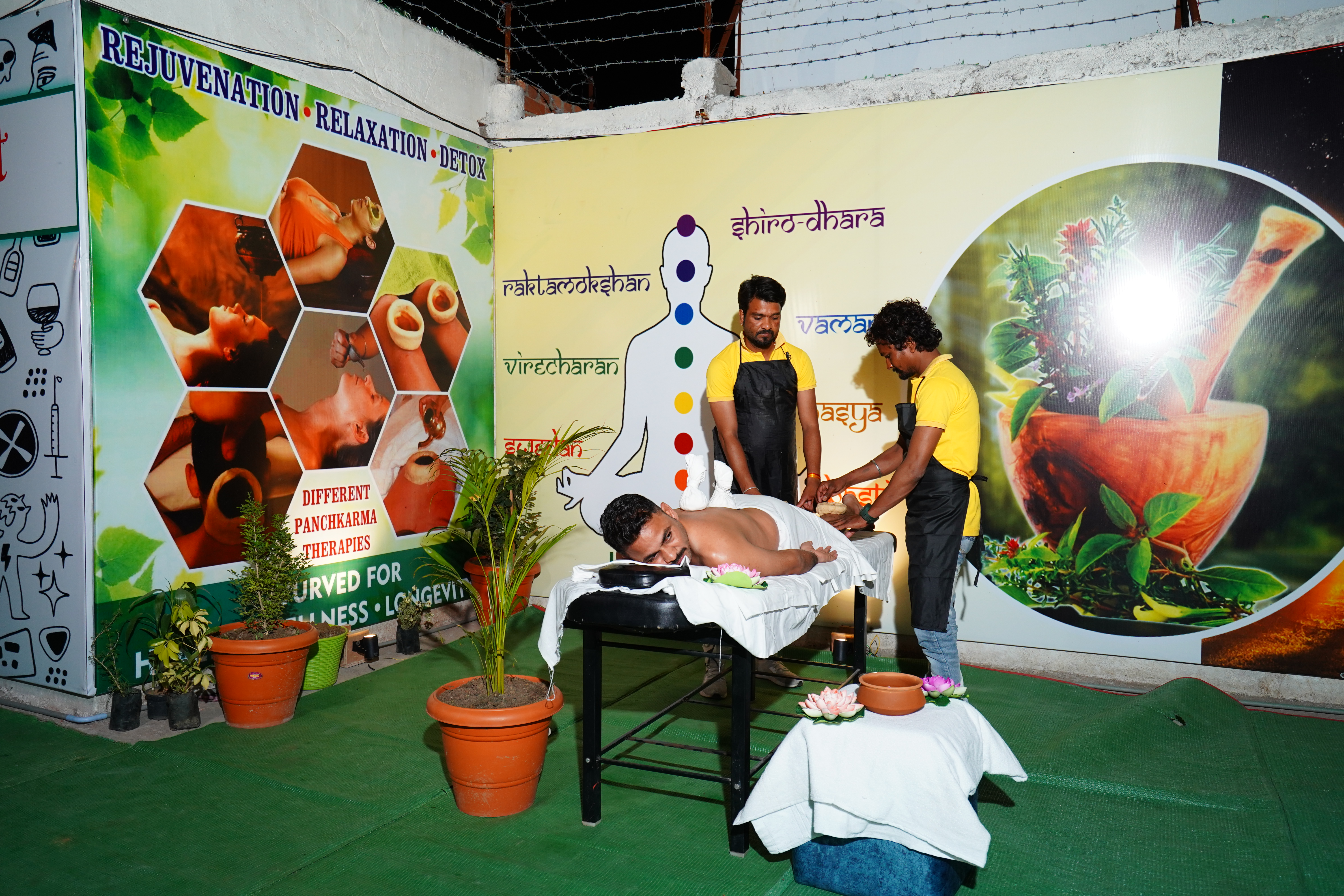
At Laksh Rehabilitation Center, we pride ourselves on offering an extensive array of services designed to meet the unique challenges of addiction and mental health recovery. Our offerings span from in-depth detoxification processes and rigorous inpatient rehabilitation programs to flexible outpatient services and continuous aftercare support. Holistic methods like yoga, meditation, and nutritional therapy complement our clinical treatments, ensuring a well-rounded approach to recovery. Every service at Laksh Vyasan Mukti Kendra is underpinned by our commitment to personalized care, ensuring that each client receives the support they need to thrive.
Our Team at the Laksh Vyasan Mukti Kendra (Maharashtra)
The backbone of Laksh Vyasan Mukti and Rehabilitation Center, Maharashtra, is our interdisciplinary team of seasoned professionals. Each specialist, from addiction psychiatrists and clinical psychologists to counselors and support staff, brings a wealth of knowledge and a compassionate heart to their work. United by a common goal, our team collaborates closely to provide comprehensive, integrated care that respects the dignity and individuality of each client. We are committed to ongoing education and development, ensuring our practices remain at the forefront of addiction and mental health treatment.
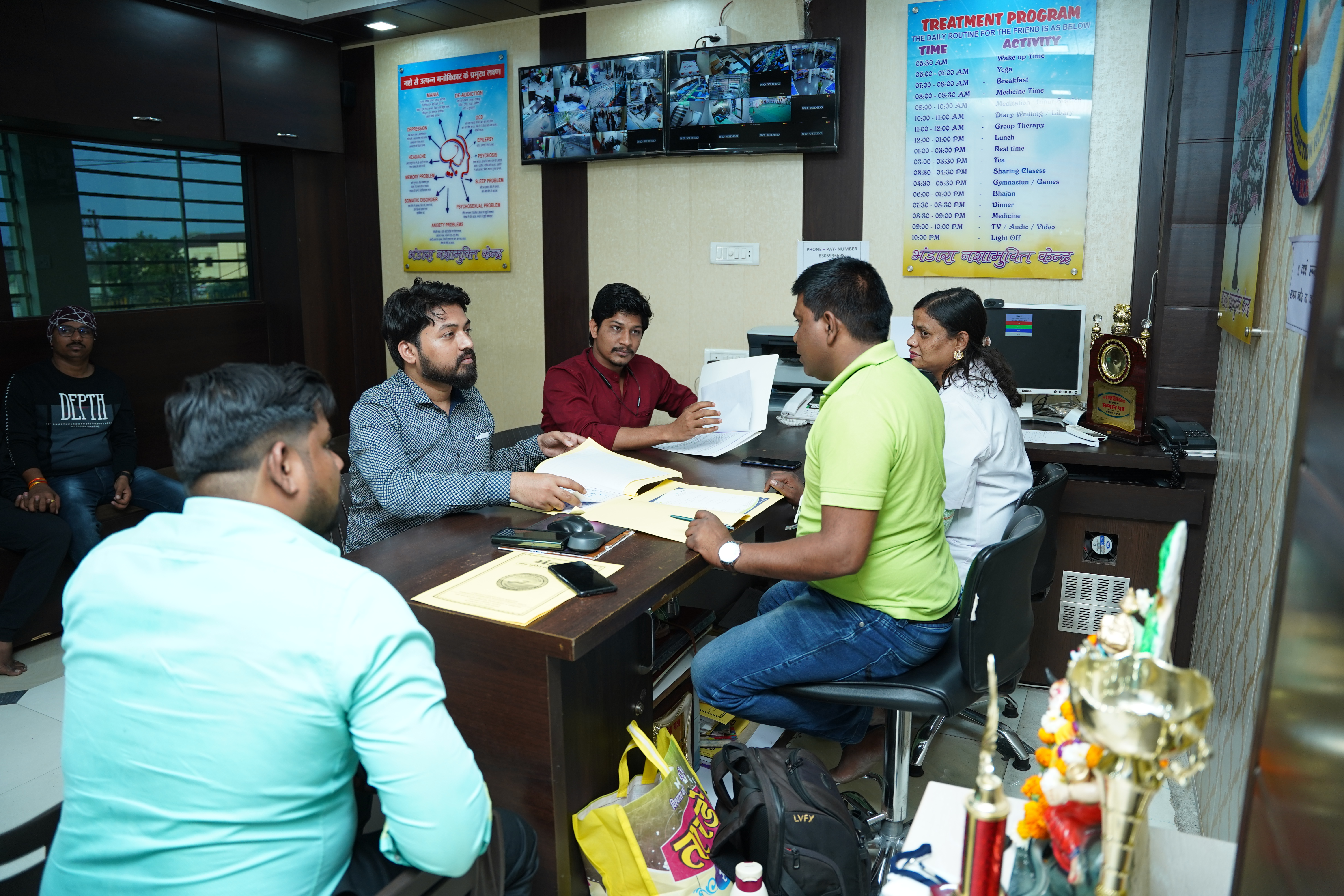
व्यसन मुक्ति केंद्र, महाराष्ट्र, और बाद की देखभाल
व्यसन मुक्ति के पथ पर, बाद की देखभाल एक अनिवार्य चरण होता है जो स्थायी सफलता की ओर ले जाती है। व्यसन से मुक्ति प्राप्त करने के बाद, व्यक्ति के जीवन में नए उत्साह और संतुलन का निर्माण करना आवश्यक होता है। इसलिए, बाद की देखभाल कार्यक्रमों में न केवल रिलैप्स प्रिवेंशन रणनीतियों का समावेश होता है बल्कि व्यक्तिगत विकास, सामाजिक समर्थन नेटवर्क का विस्तार, और स्वास्थ्यपूर्ण जीवनशैली के विकास पर भी ध्यान दिया जाता है।
बाद की देखभाल सेवाएं व्यक्तियों को सकारात्मक सामाजिक संबंधों का निर्माण करने, नौकरी और शिक्षा में सहायता प्रदान करने, और आत्म-सहायता समूहों के साथ जुड़ाव में मदद करती हैं। यह व्यक्तियों को अपने नए जीवन के पथ पर मार्गदर्शन करते हुए उन्हें सशक्त बनाती हैं और उनकी रिकवरी को मजबूती प्रदान करती हैं।
अंततः, बाद की देखभाल का उद्देश्य व्यक्तियों को व्यसन की चुनौतियों से उबरने के लिए आवश्यक उपकरण और संसाधन प्रदान करना है, ताकि वे एक स्वस्थ, संतुष्ट और सार्थक जीवन जी सकें।
Community Reintegration Programs in Drug Rehabilitation at the Nasha and Vyasan Mukti Kendra, Maharashtra
Community reintegration programs are a crucial aspect of drug rehabilitation, aimed at successfully reintegrating individuals recovering from addiction back into their communities. These programs focus on restoring the individual’s ability to function socially, vocationally, and educationally, promoting a sense of belonging and purpose. They address barriers to reintegration such as stigma, employment challenges, and social isolation, offering support through vocational training, educational opportunities, and social skills development. Community reintegration efforts also involve connecting individuals with community resources, support groups, and social networks that can offer ongoing support and encouragement. By fostering a supportive environment and providing the necessary tools for social re-engagement, community reintegration programs play a vital role in sustaining long-term recovery, reducing the risk of relapse, and enhancing the overall quality of life for individuals recovering from addiction.
Getting Started with Us at the Laksh Nasha Mukti Kendra, Maharashtra
Embarking on your recovery journey at Laksh Rehabilitation Center begins with a simple yet profound step: reaching out. Our admissions process is designed with your ease and comfort in mind, ensuring a seamless transition into our care. From the initial assessment to personalized therapy and beyond, we are here to support, guide, and walk beside you on your path to recovery. We invite you to join us, taking that first step towards a life of health, happiness, and sobriety.
FREQUENTLY ASKED QUESTIONS AT A REHABILITATION CENTER
Q. How do I handle social stigma and discrimination after completing drug rehabilitation?
Handling social stigma and discrimination after completing drug rehabilitation involves educating oneself about addiction, maintaining a strong support network, and practicing self-compassion. It’s important to recognize that stigma and discrimination are based on misconceptions and stereotypes, and individuals in recovery should not internalize negative attitudes or judgments from others. Surrounding oneself with supportive friends, family, and peers in recovery can provide a sense of belonging and validation. Engaging in advocacy efforts and sharing personal stories can also help combat stigma and promote understanding in the community.
Q. Can I receive drug rehabilitation treatment if I have a history of non-suicidal self-injury?
Yes, individuals with a history of non-suicidal self-injury can receive drug rehabilitation treatment. Many rehabilitation programs are equipped to address co-occurring mental health issues, including self-injury, and provide specialized care tailored to individual needs. Rehabilitation professionals work collaboratively with individuals to address underlying issues contributing to self-injury and develop healthy coping strategies to manage emotions and stressors effectively. The focus is on providing support, understanding, and therapeutic interventions to promote healing and recovery.
Q. What is the role of trauma-informed care in drug rehabilitation?
Trauma-informed care is an essential approach in drug rehabilitation that recognizes the impact of trauma on individuals’ lives and incorporates this understanding into treatment modalities and program structures. Rehabilitation programs that employ trauma-informed care principles prioritize safety, trust, empowerment, choice, and collaboration in their approach. They provide trauma-sensitive environments, trauma-specific interventions, and trauma-focused therapies to help individuals address past traumatic experiences, heal from emotional wounds, and develop resilience and coping skills. Trauma-informed care creates a supportive and empowering atmosphere conducive to recovery and growth.
Q. Can drug rehabilitation help with developing coping strategies for stress and anxiety?
Yes, drug rehabilitation can help individuals develop coping strategies for stress and anxiety through various therapeutic modalities and skill-building exercises. Rehabilitation programs may offer stress management workshops, relaxation techniques, and mindfulness-based practices to help individuals regulate emotions and reduce anxiety. Cognitive-behavioral therapy (CBT) and dialectical behavior therapy (DBT) teach individuals practical coping skills to identify and challenge negative thought patterns, manage stressors, and improve overall emotional well-being. By learning effective coping strategies, individuals can better navigate challenges and maintain sobriety in their recovery journey.
Q. How do I address codependency issues during drug rehabilitation?
Addressing codependency issues during drug rehabilitation involves exploring patterns of behavior, setting boundaries, and fostering healthy relationships. Rehabilitation programs offer therapy modalities, such as individual counseling and group therapy, to help individuals understand the dynamics of codependency and develop strategies for assertiveness, self-care, and independence. Family therapy may also be beneficial in addressing codependency issues within the context of family relationships and promoting healthy communication and boundaries. By building self-awareness and prioritizing one’s needs and well-being, individuals can break free from codependent patterns and cultivate healthier, more fulfilling relationships.
